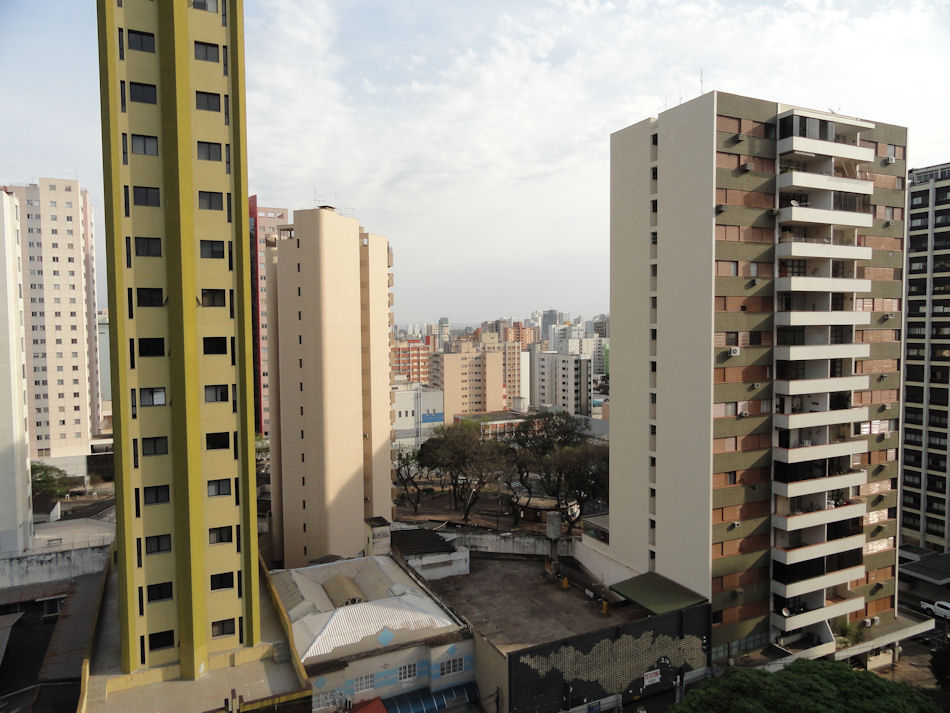
I am down in Londrina in the State of Paraná to take part in the opening of a new addition to one of the Binational Centers here. I like to take advantage of American holidays (in this case Labor Day) to travel. Brazilians are still at work, so I can make appointments, but Washington and the Embassy are closed so I don’t miss much of the office work.
The BNCs are happy to see us. One of their selling points is the connections with the U.S. Embassy and the occasional public presence of a diplomat reinforces that. Beyond that, their new addition is made possible by a grant that they got through the Embassy and I have a fiduciary responsibility to check to see how it was done. The director of the BNC told me that he is very careful to use all these assets strategically and attributes a 20% increase in students to improvements.
BNCs are living in the best of times and the worst of times. English teaching is a real growth industry in Brazil and the BNCs provide the highest quality. But they also face lots of competition from private firms that have bigger ad budgets and can promise (although not always deliver) faster results. The reason we (USG) support BNCs is that they maintain connections with the U.S.
We used to do a lot more with them in terms of cultural programs and outreach, but our capacity has declined with steady budget cuts and changing emphasis. This is not the result of the current sequester. Cultural programming has been declining since the end of the United States Information Agency (USIA) in 1999 and even before. We used to have a much bigger staff, many of whom were involved with these sorts of programs but sponsoring culture was always controversial. During the Cold War, we justified it on policy reasons. Beyond that, in times past there was less available in terms of cultural programs. Those conditions have all changed.
Anyway, the bottom line is that we have less to offer BNCs in terms of cultural programs and I doubt that it will ever come back. So we need to develop other sorts of relationships. Nobody wants the BNCs to become mere English teaching institutions. That would eliminate their unique contribution to their communities. But English teaching pays the bills. Other programs are cost centers. One of the very valuable services BNCs provide right now is education advising. As I mentioned in earlier posts, students going to the U.S. bring a lot of benefits to the U.S. I don’t have an easy answer to how to continue to support the good things that don’t provide direct benefits to the providers. This is a problem bigger than only our BNCs.
Besides talking to the BNC director yesterday, I hosted some of our youth alumni for a pizza dinner. We have sent lots of young people on programs like Youth Ambassadors and it is important, IMO, to maintain contact. A network is only as useful as it is current. One of my policies is to invite young alumni to pizza whenever I visit a Brazilian city. I usually only get five or six actually show up (although in towns less visited I get bigger crowds), but many more are contacted, which helped keep the connection. I learned a few interesting things at the pizza event yesterday. The students complained that some of their professors just don’t show up to give classes regularly. I was surprised, but they told me it was not uncommon. Today I will visit some of the universities and see if I can get more information re.
My picture is Londrina skyline from my hotel room.
